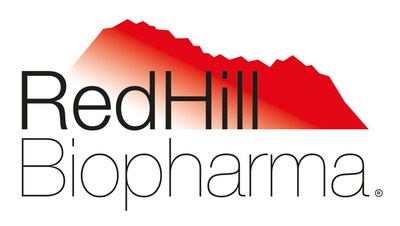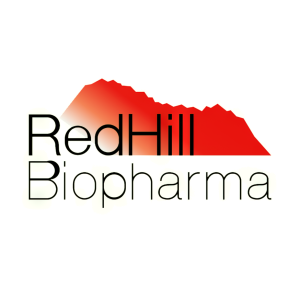RedHill Biopharma Secures U.S. Government Funding through BARDA to Advance Opaganib for Ebola Treatment
Rhea-AI Summary
RedHill Biopharma has secured U.S. government funding through BARDA to advance opaganib for Ebola treatment. The funding will support the development of opaganib as a medical countermeasure (MCM) for Ebola virus disease (EBOV). Recent U.S. Army-funded studies showed that opaganib significantly increased survival in an EBOV model. Opaganib is a novel, potentially broad-acting drug with mutation-resistant antiviral and anti-inflammatory activity.
The development comes as there is an urgent need for effective and usable therapies for EBOV, which has a fatality rate of around 50% according to WHO. Opaganib represents an alternative host-directed therapeutic strategy for biodefense and global health preparedness. The drug is also being developed for other indications, including COVID-19, ARDS, and radiological and chemical protection.
Positive
- Secured U.S. government funding through BARDA for opaganib development
- Opaganib showed statistically significant increase in survival in EBOV model
- Potential for opaganib to be first host-directed molecule to show activity in EBOV
- Opaganib demonstrated synergistic effect with remdesivir in EBOV study
- Multiple potential applications for opaganib in various indications
Negative
- None.
News Market Reaction – RDHL
On the day this news was published, RDHL declined 0.40%, reflecting a mild negative market reaction.
Data tracked by StockTitan Argus on the day of publication.
The
--
The funding advances opaganib's positive development progress to date on the expected FDA Animal Rule pathway toward potential approval as an MCM for EBOV
--
Recent
--
This year marks the 10th anniversary of the West Africa Ebola epidemic in which 11,000 people died, and there is still an urgent need for effective and useable therapies, with EBOV proving fatal in around half of all cases according to the World Health Organization (WHO)1
--
Opaganib, a novel potentially broad-acting drug, has shown mutation-resistant antiviral and anti-inflammatory activity, likely to directly impact vascular health - one of the main targets for EBOV dysfunction. It is believed to be the first host-directed molecule to show activity in EBOV in vivo and represents an alternative host-directed therapeutic strategy for biodefense and global health preparedness. Additional
--
Significant geopolitical and logistical challenges exist in managing outbreaks of disease and there is an urgent need for safe and effective, oral, small molecule therapeutics that can be stored and easily distributed and administered in an outbreak

Under this cost-sharing contract, BARDA will provide partial funding for the company to further advance opaganib to mitigate infection and contain EBOV outbreaks. To date, opaganib has made positive development progress on the expected Animal Rule pathway towards potential approval as a treatment for EBOV. The Animal Rule allows for the use of pivotal animal model efficacy studies to support
"EBOV is deadly, killing, on average, half of all those who contract it. This year
Opaganib delivered a statistically significant increase in survival time when given at 150 mg/kg twice a day (BID) in a United States Army Medical Research Institute of Infectious Diseases (USAMRIID) in vivo EBOV study, making it the first host-directed molecule to show activity in EBOV. Opaganib also recently demonstrated a distinct synergistic effect when combined individually with remdesivir (Veklury®, Gilead Sciences Inc.), significantly improving potency while maintaining cell viability, in a
Opaganib is currently also in development for multiple oncology, viral, inflammatory and diabetes and obesity-related indications, including COVID-19, acute respiratory distress syndrome (ARDS) and radiological and chemical protection or mitigation.
This project is supported in whole or in part with federal funds from the Department of Health and Human Services; Administration for Strategic Preparedness and Response; Biomedical Advanced Research and Development Authority (BARDA), under contract number 75A50124C00059.
About Ebola virus disease:
According to the Centers for Disease Control and Prevention (CDC), Ebola disease is a rare and often deadly illness, caused by infection by one of a group of four viruses, known as ebolaviruses. Transmission of the disease is mostly through contact with an infected animal (bat or nonhuman primate) or a sick or dead person infected with an ebolavirus. The course of the illness typically progresses from "dry" symptoms initially (such as fever, aches and pains, and fatigue), and then progresses to "wet" symptoms (such as diarrhea, vomiting and unexplained hemorrhaging, bleeding or bruising) as the person becomes sicker. Currently only Inmazeb™ (atoltivimab, maftivimab, and odesivimab-ebgn, Regeneron Pharmaceuticals, Inc.), a combination of three monoclonal antibodies and Ebanga™ (ansuvimab-zykl, Ridgeback Biotherapeutics, LP), a single monoclonal antibody, are FDA-approved to treat EBOV. Both are intravenously administered direct acting monoclonal antibody antivirals that bind to glycoproteins on the Ebola virus's surface to prevent the virus from entering a person's cells. There is an urgent need for host-directed small molecule therapies that may be effective against multiple strains of ebolavirus, less likely to be impacted by viral mutation, and that are easy to store, distribute and administer, especially in areas where healthcare services and infrastructures may be sub-optimal.
About Opaganib (ABC294640)
Opaganib, a proprietary investigational host-directed and potentially broad-acting drug, is a first-in-class, orally administered sphingosine kinase-2 (SPHK2) selective inhibitor with anticancer, anti-inflammatory and antiviral activity, targeting multiple potential indications, including several cancers, diabetes and obesity-related disorders, gastrointestinal acute radiation syndrome (GI-ARS), Sulfur Mustard exposure, COVID-19, Ebola and other viruses as part of pandemic preparedness.
Opaganib's host-directed action is thought to work through the inhibition of multiple pathways, the induction of autophagy and apoptosis, and disruption of viral replication, through simultaneous inhibition of three sphingolipid-metabolizing enzymes in human cells (SPHK2, DES1 and GCS).
Opaganib has been selected for evaluation by multiple NIH-funded
Opaganib has demonstrated antiviral activity against SARS-CoV-2, multiple variants, and several other viruses, such as Influenza A and Ebola.
Being host-targeted, and based on data accumulated to date, opaganib is expected to maintain effect against emerging viral variants. In prespecified analyses of Phase 2/3 clinical data in hospitalized patients with moderate to severe COVID-19, oral opaganib demonstrated improved viral RNA clearance, faster time to recovery and significant mortality reduction in key patient subpopulations versus placebo on top of standard of care. Opaganib has demonstrated its safety and tolerability profile in more than 470 people in multiple clinical studies and expanded access use. Data from the opaganib global Phase 2/3 study was published in Microorganisms.
Opaganib has received several orphan-drug designations from the FDA in oncology and other diseases and has undergone studies in advanced cholangiocarcinoma (Phase 2a) and prostate cancer. Opaganib also has a Phase 1 chemoradiotherapy study protocol ready for FDA-IND submission.
Opaganib has also shown positive preclinical results in renal fibrosis, and has the potential to target multiple oncology, radioprotection, viral, inflammatory, and gastrointestinal indications.
About RedHill Biopharma
RedHill Biopharma Ltd. (Nasdaq: RDHL) is a specialty biopharmaceutical company primarily focused on gastrointestinal and infectious diseases. RedHill promotes the gastrointestinal drug Talicia®, for the treatment of Helicobacter pylori (H. pylori) infection in adults3. RedHill's key clinical late-stage development programs include: (i) opaganib (ABC294640), a first-in-class oral broad-acting, host-directed SPHK2 selective inhibitor with potential for pandemic preparedness, targeting multiple indications with a
More information about the Company is available at www.redhillbio.com / X.com/RedHillBio.
Forward-Looking Statements
This press release contains "forward-looking statements" within the meaning of the Private Securities Litigation Reform Act of 1995 and may discuss investment opportunities, stock analysis, financial performance, investor relations, and market trends. Such statements may be preceded by the words "intends," "may," "will," "plans," "expects," "anticipates," "projects," "predicts," "estimates," "aims," "believes," "hopes," "potential" or similar words and include among others, statements regarding the potential effects of opaganib in the treatment of Ebola and other indications. Forward-looking statements are based on certain assumptions and are subject to various known and unknown risks and uncertainties, many of which are beyond the Company's control and cannot be predicted or quantified, and consequently, actual results may differ materially from those expressed or implied by such forward-looking statements. Such risks and uncertainties include, without limitation: market and other conditions; the Company's ability to maintain compliance with the Nasdaq Capital Market's listing requirements; the risk that the addition of new revenue generating products or out-licensing transactions will not occur; the risk that acceptance onto the RNCP Product Development Pipeline will not guarantee ongoing development or that any such development will not be completed or successful; the risk that the FDA does not agree with the Company's proposed development plans for opaganib for any indication; the risk that observations from preclinical studies are not indicative or predictive of results in clinical trials; the risk that the FDA pre-study requirements will not be met and/or that the Phase 3 study of RHB-107 in COVID-19 outpatients will not be approved to commence or if approved, will not be completed or, should that be the case, that we will not be successful in obtaining alternative non-dilutive development funding for RHB-107; the risk that RHB-107's late-stage development for non-hospitalized COVID-19 will not benefit from the resources redirected from the terminated RHB-204 Phase 3 study, and that the Phase 2/3 COVID-19 study for RHB-107 may not be successful and, even if successful, such studies and results may not be sufficient for regulatory applications, including emergency use or marketing applications, and that additional COVID-19 studies for opaganib and RHB-107 are likely to be required; the risk that the Company will not successfully commercialize its products; as well as risks and uncertainties associated with (i) the initiation, timing, progress and results of the Company's research, manufacturing, pre-clinical studies, clinical trials, and other therapeutic candidate development efforts, and the timing of the commercial launch of its commercial products and ones it may acquire or develop in the future; (ii) the Company's ability to advance its therapeutic candidates into clinical trials or to successfully complete its pre-clinical studies or clinical trials or the development of a commercial companion diagnostic for the detection of MAP; (iii) the extent and number and type of additional studies that the Company may be required to conduct and the Company's receipt of regulatory approvals for its therapeutic candidates, and the timing of other regulatory filings, approvals and feedback; (iv) the manufacturing, clinical development, commercialization, and market acceptance of the Company's therapeutic candidates and Talicia®; (v) the Company's ability to successfully commercialize and promote Talicia® and Aemcolo®; (vi) the Company's ability to establish and maintain corporate collaborations; (vii) the Company's ability to acquire products approved for marketing in the
Company contact:
Adi Frish
Chief Corporate & Business Development Officer
RedHill Biopharma
+972-54-6543-112
adi@redhillbio.com
Category: R&D
1 https://www.who.int/news-room/fact-sheets/detail/ebola-virus-disease
2 Opaganib is an investigational new drug, not available for commercial distribution.
3 Talicia® (omeprazole magnesium, amoxicillin and rifabutin) is indicated for the treatment of H. pylori infection in adults. For full prescribing information see: www.Talicia.com.
Logo - https://mma.prnewswire.com/media/1334141/RedHill_Biopharma_Logo.jpg
![]() View original content:https://www.prnewswire.com/news-releases/redhill-biopharma-secures-us-government-funding-through-barda-to-advance-opaganib-for-ebola-treatment-302275029.html
View original content:https://www.prnewswire.com/news-releases/redhill-biopharma-secures-us-government-funding-through-barda-to-advance-opaganib-for-ebola-treatment-302275029.html
SOURCE RedHill Biopharma Ltd.







